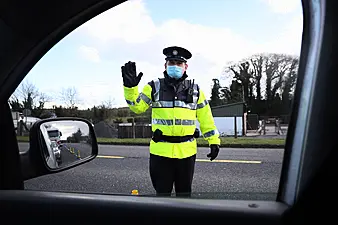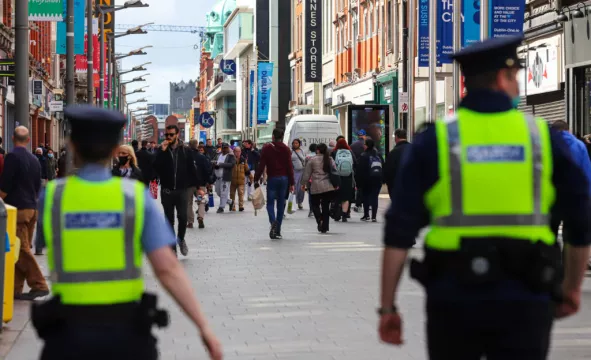Ireland is three or four weeks out from the peak of a fourth coronavirus wave driven by the Delta variant, according to a member of the National Public Health Emergency Team (Nphet).
Dr Mary Favier, also the Covid-19 adviser for the Irish College of General Practitioners, said that although the Delta surge has already started, it could be up to four weeks before it reaches its full force.
With daily case numbers nearing 1,000 yesterday, Nphet has indicated they will continue to grow exponentially unless public behaviour changes.
The number of patients hospitalised with the disease has increased by almost a third in the past week, with 79 people currently on wards with the virus — down one from yesterday, but remaining 57 per cent higher than last Friday.
We’ve got two, three, four weeks to really try and stay ahead of this
Dr Favier said there is a race against time to get as many people as possible fully vaccinated.
“We’ve got two, three, four weeks to really try and stay ahead of this,” she told Newstalk radio.
“We have got this opportunity to really make a difference and it is our behaviours as well as vaccination that will make the difference,” she added.
Dr Favier cautioned people not to put themselves at risk. This was the final push before full vaccination could be achieved, she said. Until that was done, absolute vigilance was needed.
Vaccinated cases
People do not know if they are going to be one of the five per cent of people who are vaccinated but still contract the disease, Dr Favier said.
The real concern, she added, is that if there is a large surge, it will eventually enter people’s homes and catch those who are not vaccinated for whatever reason — or cannot be.
“About 10 per cent or 15 per cent of people aged 50 to 60 are still not vaccinated for whatever reason and they need to be really vigilant,” she said.
Dr Favier said that the public needed to maintain vigilance in standard public health precautions such as wearing face masks, practising hand hygiene and if they were not fully vaccinated, not going to places where they would be at risk.
We don’t have our younger people vaccinated yet
“What is different about this wave is we have vaccination, it is really effective, but the concern is we don’t have our younger people vaccinated yet and there are some people, for whatever reason, who have not put themselves forward for vaccination,” she said.
“For general practitioners, what we’re really concerned about is we’re so busy with non-Covid things, the idea that a surge would come and would displace activity [is worrying].
“But even patients are saying to us, they’re starting to look forward four or five, six weeks to schools going back, to colleges going back, you know, [they’re] anxious that that won’t happen.”
Vaccine appointments from Monday
As the vaccine registration portal is now open for those aged 25 to 29 for an mRNA jab, the HSE's national lead on the vaccination programme said appointments will be offered as soon as Monday.
“Registration opens today,” the HSE’s Damien McCallion told Newstalk radio.
“The administration of vaccines will commence almost immediately within a number of days for some people, and over the three-week window, we would hope that the majority of people will either be vaccinated or have appointments.
“It can occasionally spill over into the fourth week, but appointments start effectively from Monday.”
It comes as another vaccine milestone is reached today, with a total five million doses administered. More than 70 per cent of the adult population have had at least one dose of a vaccine and almost 60 per cent of adults are now fully vaccinated.

After 994 new cases of the virus were confirmed yesterday evening, a professor has warned that a ban on intercounty travel is now needed to contain a fourth surge of the disease.
The Tánaiste has said it is “not yet possible” to rule out bringing in further restrictions as cases continue to rise due to the Delta variant.
Leo Varadkar said people who are not fully vaccinated are the "new vulnerable" and should live the coming weeks "like it is March 2020" when a two-kilometre travel limit was imposed.
—Additional reporting by Vivienne Clarke.







